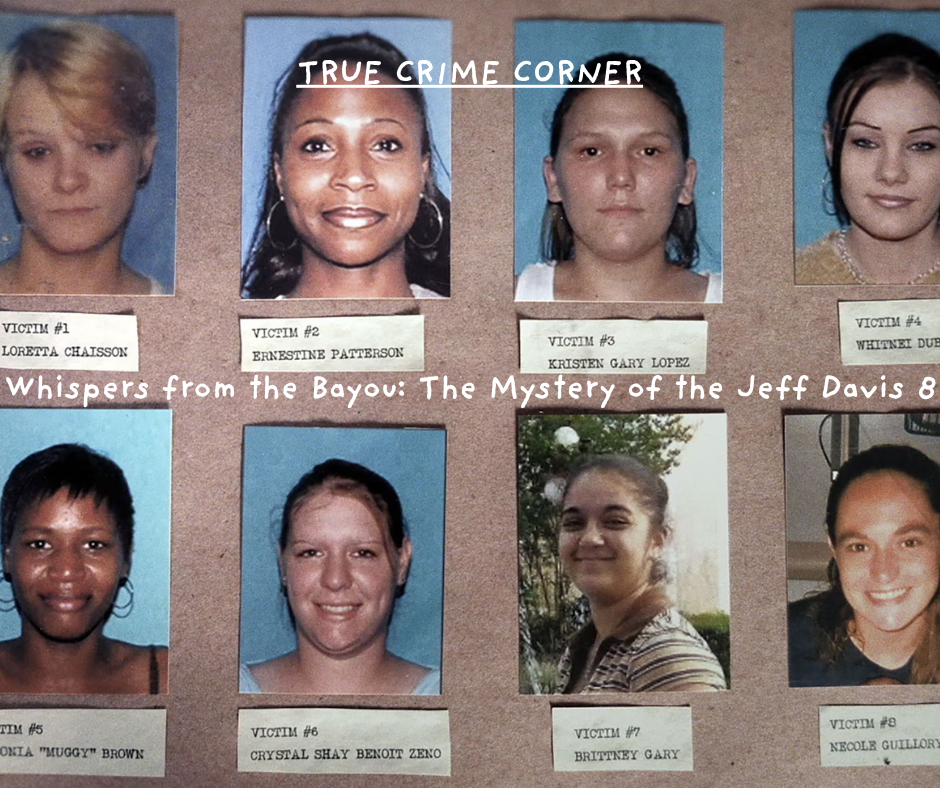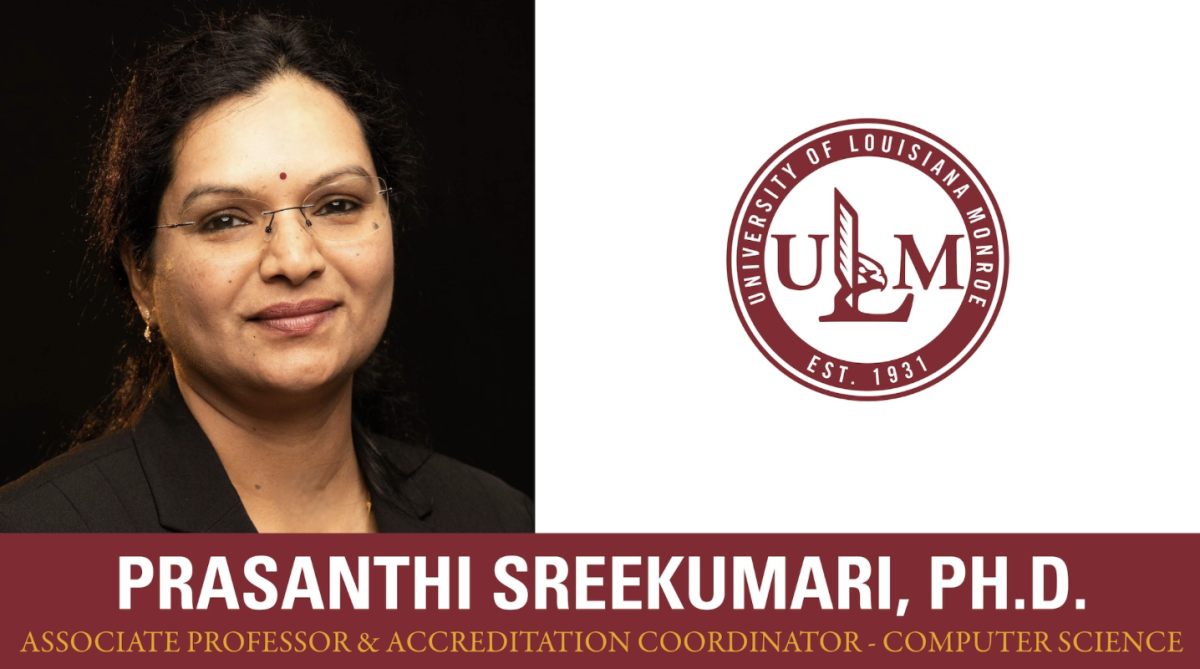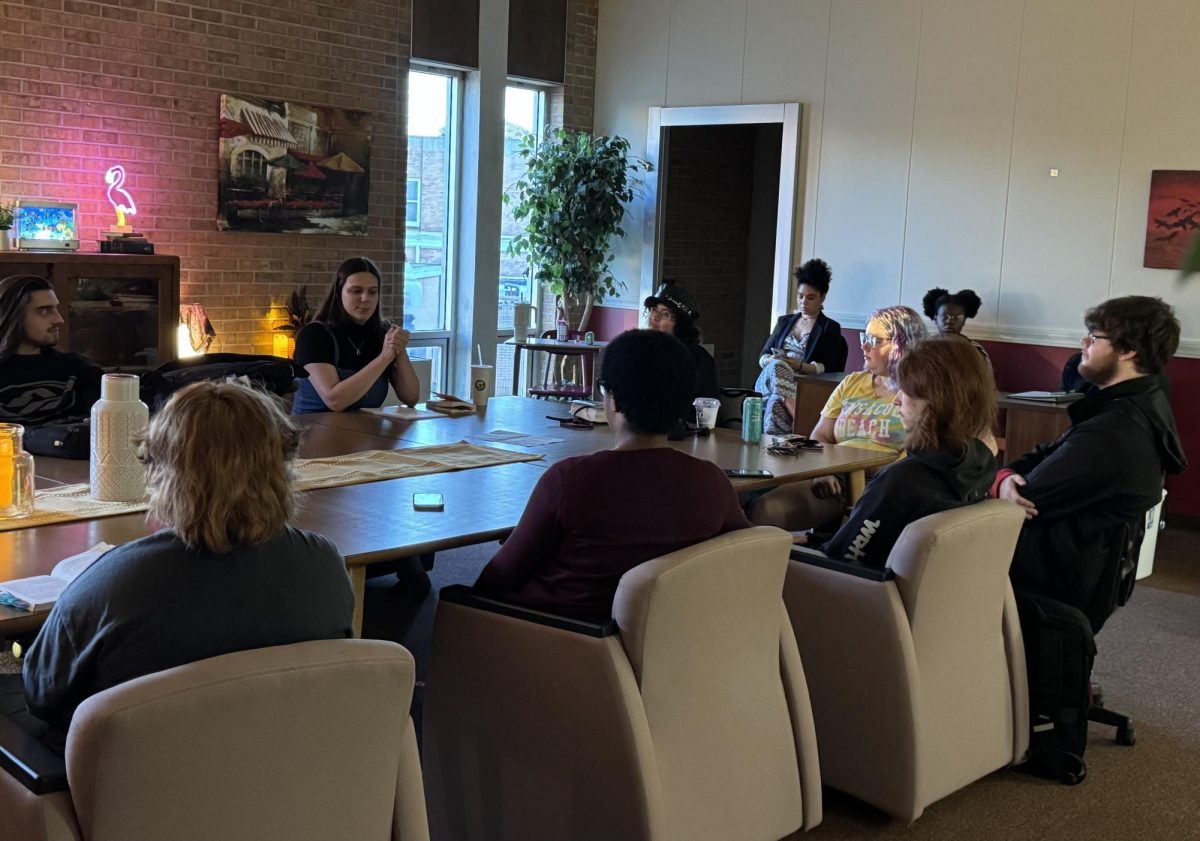While the First Amendment allows American citizens to say what they want, censorship is constantly fighting against words being reached by everyone.
Banned Book Week was established in 1982, and over 11,000 books have been challenged or banned since.
Banned books are not readily available for everyone to attain. They can be banned by schools, public libraries or age groups.
ULM’s International English Honor Society, Sigmu Tau Delta, celebrated Banned Book Week last Wednesday.
This was the fourth year that the Banned Book Read-Out has taken place on campus.
“We want to celebrate the freedom to read and validate the chance for all voices to be heard so certain experiences don’t get ignored,” said Jana Giles, associate professor of School of Humanities.
Students read excerpts from seven different books.
Cooper Doyle read three sections from “Perks of Being a Wallflower,” which is a book that has been challenged numerous times since it was published in 1999.
The second excerpt was one Doyle said he was very satisfied with after going back to decide what he should read.
It contained almost everything that the book has been challenged for.
Doyle said the book is a very important book to him.
“It’s very near and dear to my heart. It’s one of those books that changed me. I’m not really sure how to phrase it, but it’s one of those works that people encounter in their lifetimes,” Doyle said.
Rachael Maddox decided to go a different route than the other readers. She read an excerpt from “Brave New World” by Aldous Huxley.
Although the book has been banned for numerous other reasons, Maddox chose to read a part containing ideas of God.
“I’m more interested in the censorship of ideas instead of explicit or sexual content,” Maddox said.
David Brasher read an excerpt from “American Psycho.”
This book is banned as harmful to minors in Germany. In Australia, no person under 18 can purchase it.
After reading the very graphic section, Brasher lightened the mood and told the audience to have “sweet dreams” that night.
There were some in the room that didn’t quite understand why everyone thought it was so important to read those books.
“It’s interesting, I guess, but it’s strange because it feels like they’re telling us to just go out and read explicit content,” Kathryn Merrill, elementary education major said.





